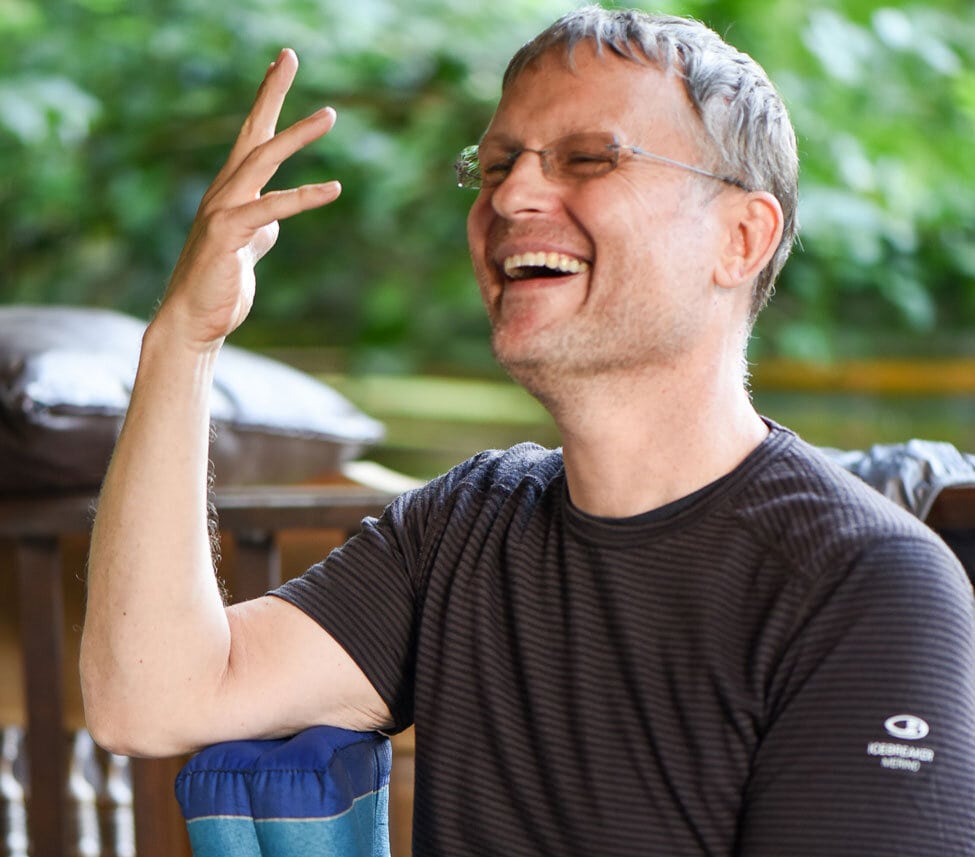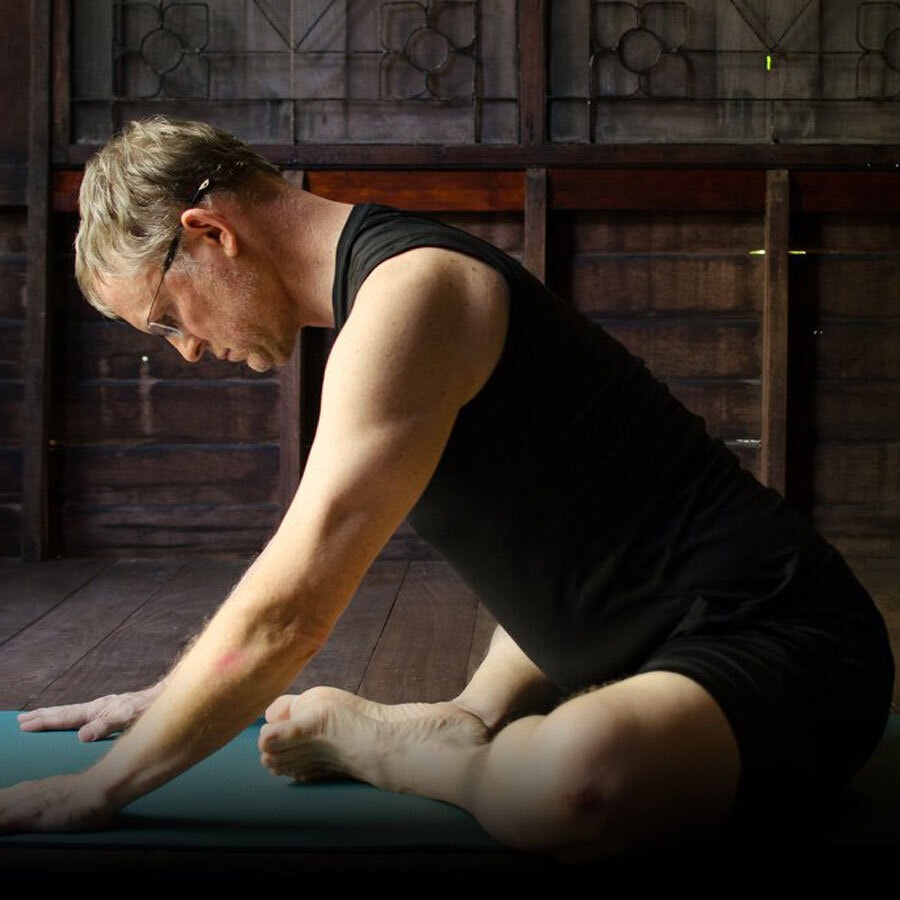Follow Up: Yoga Webinar with Gernot Huber
We interviewed Gernot Huber as part of a launch for his Yoga Anatomy Toolkit Course on Urban Yogis Academy. Gernot offered insight into a perspective of yoga and wellbeing that is slowly being embraced, although still not as appreciated as the “go hard or go home” or “yoga is 99% practice, 1% theory” mentality of today’s fitness and yoga industries. There is certainly nothing wrong with training hard and practicing intensely, but he brings up the point that when we practice and train, are we aware of what we’re actually training ourselves to do? The idea of practicing smarter than our habits means that our training and practice should minimise or at least bring awareness to our automatic habits and stress patterns so that we are not reinforcing pre-programmed reactions that may not be beneficial to our overall health and wellbeing.
We Are Pre-Programmed Towards Extremities
Human nature is predisposed to behaving at extreme ends of the spectrum. For example, while we tend to recognise that very little exercises is not good for our health, we tend to revert to the opposite end of the spectrum as a solution. Evolutionarily, we are pre-programmed towards extremes as a survival mechanism. Historically, we evolved in harsher environments where access to food, water, nutrients, and shelter were limited and the “more is better” approach served our survival needs. We know that for the first time in history, most people in the developed world live a life where all our basic needs are met. However, we are still wired with the reaction to seek more, even when that doesn’t serve our health. Thus, the concept of BALANCE is something that we must consciously create.
This pre-disposition to extremes leads us to our goal orientation, which creeps into all aspects of our lives. Recognize that the drive towards goals is part of our survival mechanism, but that it doesn’t really serve our happiness. In fact, Gernot asserts that using this orientation towards goals to maximise our happiness is using the wrong tool for the job. Thus, in order to be happy and to increase our health and wellbeing, we have to overcome this wiring towards extremes. We have to make our lives smarter than our habits.
Stress Reactions May Be Reinforced In Our Yoga Practice
Stress is another evolutionary reaction that while useful in situations or environments where we are in danger, tends to emerge these days in situations where it doesn’t serve our purpose. One such place we see our stress reactions emerge where they don’t belong is in our yoga practice. Stress reactions such as muscle tension, holding the breath, clenching jaws and increasing the heart rate get us ready to fight, flight, or freeze, but they’re not useful in situations where we are not actually in danger. We see these reactions emerge in our yoga practice, even in the simplest of movements, such as raising the arms over the head. Here, our orientation to extremes shows up by our propensity to reach the hands as far as we can, and our stress reaction of tensing the shoulders emerge because in order to reach our extreme goal, our body has moved out of its natural state of balance.
Short-Term Gains Are Not The Same As Long-Run Efficiency
Goal-oriented behaviour, coupled with our pre-programmed stress reactions give us the impression that we are making gains in the short term. What we may not realize however, is that this approach reinforces patterns that may be putting us further out of balance. In order to take certain yoga postures to their maximum expression, many people rely on using muscles that are strong at the expense of the ones that are weak, or relying on muscles and joints that are already flexible at the expense of stability. Long-run efficiency on the other hand relies on greater awareness and acknowledgment of these habits and patterns, and a determination to relearn our ways of being. That means taking a step that might take us away from maximum expression so that the backbends may not look as bendy, or the forward folds may not be as visually impressive, but what’s going on inside, is a much more integrated being. Long-run efficiency requires an understanding of what our patterns and habits of movement are, and to overcome them with practice.
This approach forces us to look at that 99% practice in a way of creating greater balance and long-run efficiency rather than reinforcing our habits in our search for short-term gains. If we can function consistently in a way that is less stressful, that in turn leads to greater health, improves wellbeing and increases our level of happiness.
For a more detailed understanding of how we can move towards a more balanced and efficient practice, sign up for The Yoga Anatomy Toolkit Course with Gernot Huber on Urban Yogis Academy. Don’t forget to check out WEBINARS by Urban Yogis for more engaging conversations.
About the Author
Julie Moksim is co-founder of Urban Yogis. She is Singaporean by birth but a global citizen by lifestyle. Julie began her yoga journey in Boston in 2003. Today she runs Urban Yogis and a Yoga Cooperative in Laos called Luang Prabang Yoga.


About Gernot Huber
Gernot leads the yoga anatomy component of yoga teacher training courses for various noteworthy schools in Asia. Outside of teacher trainings, he offers anatomy and biomechanics-based courses and workshops as continuing education for yoga teachers, as well as practitioners who would like to understand their practice better. While he is based primarily in Chiang Mai, he travels globally to offer his unique approach to movement. Gernot also has taught workshops at the prestigious Feathered Pipe Ranch in the United States, a retreat center that has hosted some of the world’s most notable yoga teachers.


1